How to Make Sense of God
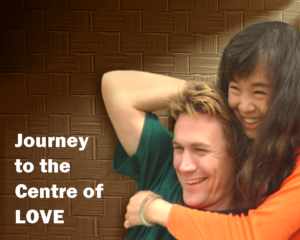 This was our most successful and ambitious video course. It is undeniable that the practice of religion and belief in God are shrinking in our world. We decided that it is a top priority for Catholics worldwide to tackle this challenge. So we designed a course that helps people re-discover God in our modern world. It presents Christian faith to the kind of people we have become today: secular and scientifically minded.
This was our most successful and ambitious video course. It is undeniable that the practice of religion and belief in God are shrinking in our world. We decided that it is a top priority for Catholics worldwide to tackle this challenge. So we designed a course that helps people re-discover God in our modern world. It presents Christian faith to the kind of people we have become today: secular and scientifically minded.
The majority of people in the West still believe in God, but the image is confused and frequently contradicts implicit or explicit tenets of people’s secular convictions. Research has shown that a new presentation is required which provides reasons why belief in God makes sense even in a secular age. This course, we knew, had to offer a reasoned witness. Its main purpose is to help people think about the issues involved. The arguments of atheists and agnostics are presented alongside modern Christian reasoning. The presentation had to be kept within short chapters, and in semi-academic form, to accommodate people’s reduced attention span.
To do justice to this aim, the course was set up to be larger than the previous Walking on Water courses. Instead of having just three parts, ‘How to Make Sense of God’ has five parts, each confronting a key area of discussion: mystery – do science and religion exclude each other?! creation – does evolution say it all?! conscience – where does our conscience come from?! encounter – is ‘Incarnation’ just an illusion? love – are human suffering and a loving God compatible?
The course starts from a wholehearted acceptance of the positive values of our own age: the freedom and autonomy of the individual, the raising of living standards through technology, respect for human rights, and the discovery of truth with the help of the sciences. It shows that more than ever it makes sense to believe in God as the Source of all we are.
To provide solid discussion material I wrote the 340-page course book entitled ‘How to Make Sense of God’. Each of its five parts contains ample material for five discussion sessions each. The professional cartoonist Tom Adcock contributed excellent drawings which are both humorous and enlightening.
We realised that the course needed a very strong ‘parable’ component in story on video. This eventually resulted in a film called ‘Journey to the Centre of Love’. It too has five parts of 35 minutes duration each corresponding to the five parts in the course book.
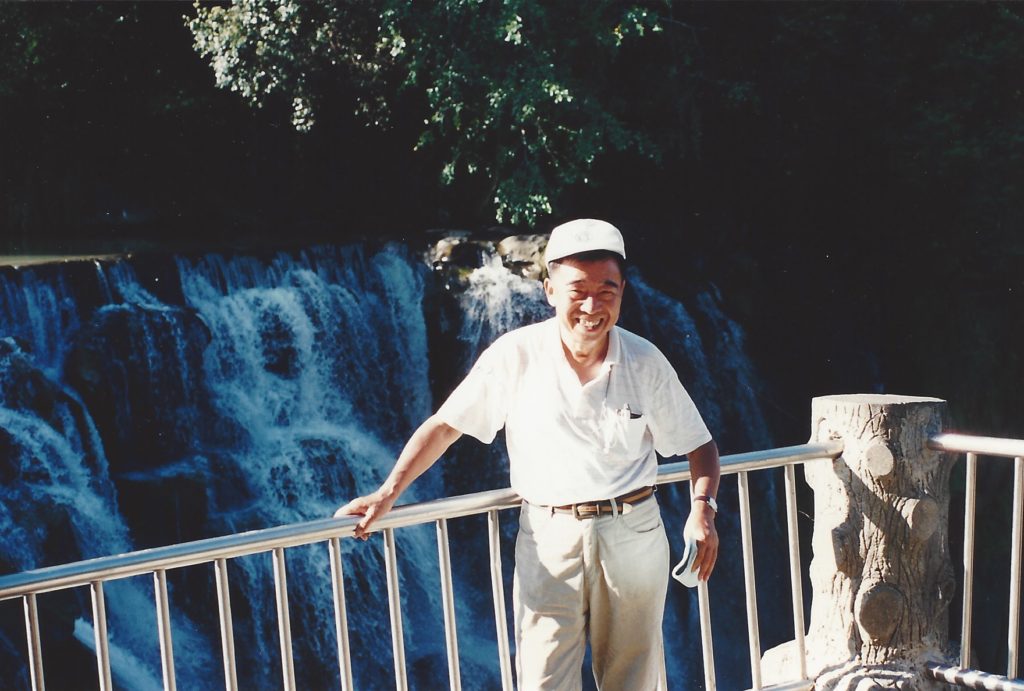
Our Chinese film director in Taiwan: Sung Tsu Shou
After researching various possibilities, we opted to make the film around a story that would take place partly in England and partly in Taiwan. To learn about good scenes needed in the script I travelled to Taiwan with my colleague Hubert de By. Under expert guidance of our partners in Kuangchi Centre, Taipei, I familiarised myself with Chinese conditions of life and discovered the right locations such as Lung Shan Taoist Temple, Fung Shou University and Sun Moon Lake.
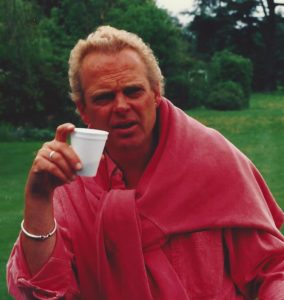
Our Dutch film director in the UK: Louis Postma
Through sufficient funding received from sponsors we were able to enlist top professionals for the production. Our two film directors were Sung Tsu Shou in Taiwan who had directed 26 Chinese feature films, three of which receiving nominations and awards, and Laurens Postma in England who had directed acclaimed dramas and documentaries for the BBC and Channel 4. Our two leading artists were acclaimed actors: Wu Mai Ling acted in a popular Taiwanese serial and Marcus Atkinson in modern theatre.
Part One. MYSTERY
The Course Book. How to make sense of God, part one.
The book sets out to prove the absolute need of religion in life. Yes, religion is human. Every form of religion is shaped by our human imagination, also our notions of God. Religion responds to psychological needs. But the fact that religion is human does not invalidate its basic claims. Religion deals with mystery, with the dimension of the Beyond.
We live in a scientific age and we should treasure the progress science and technology have brought us. However, the idea that science has disproved religion is absurd. Science does not supply answers to the ultimate questions of life. Scientists too, like all other human beings, derive their values and their norms for what is right or wrong, from outside the realm of science.
We have to admit the failings of all organised religions, also those of Christianity. At the same time it can be shown that belief in God can make us better and happier. We have to return to our roots by recapturing what is mysterious and sacred.
Matching part on the video. Journey to the Centre of Love, part one.
Taipei, the capital of Taiwan, is a secular city like London. Wan Chen, a marine biologist, tells us her life story. She was baptised a Christian because her mother was a Christian. But her granny believed in Taoist gods. Her father had rejected all religion. As a teenager Wan Chen grapples with the problem that we make gods in our own image. How do we know God exists when our religions are so human?
Later, as a college student, she experiences the tension between faith and science. She works out why the two need not be in conflict. Wan Chen also reflects on what all religions have in common. This means that, also as Christians, we should respect God’s presence in them.
Part Two. CREATION
The Course Book. How to make sense of God, part two.
This part of the course focuses on God as the source and origin of all that exists. How did the world come about? Has everything not been explained by evolution? Do we have any solid evidence for holding that our universe was created by God? We discuss both the classical arguments and modern approaches.
We discover that wrong images of God constitute a key problem. If we consider the world as a two-tier reality, with God residing in a supernatural realm from which he guides the affairs in our universe, our views are bound to clash with what we know from the sciences. Also, the literal interpretation of the creation myths presents an obstacle. When, however, we begin to grasp that God is the ground of all being, the validity of all truth, the reality that underlies our ultimate concerns, we find overwhelming evidence of his presence.
Matching part on the video. Journey to the Centre of Love, part two.
Martin is a waiter in London whose passion in life is to become a professional dancer. He looks after his baby daughter Denise, because his wife died. Martin has never given God much thought. He is suddenly confronted by God as a challenge when he is invited to dance the part of God in a dance that celebrates creation. In discussion with his friends he asks himself whether there is any evidence to prove that God exists? Can’t we explain everything through evolution?
He also finds out that he may need to change the popular image he has of God. God may be more like Nataraj, the Indian God who is the dance of life in everything that exists. He discovers that God may be present to us as the iron core in the centre of the earth. God holds us even if we are not aware of God.
Part Three. CONSCIENCE
The Course Book. How to make sense of God, part three.
Humanists often maintain that belief in God hampers human freedom and autonomy. Religion leads to bigotry. Piety breeds observances inspired by fear. While conceding that mistakes have been made in the name of religion, we establish that God needs to be there as the one who provides an objective basis to all morality. Far from obstructing human freedom, it is God who, by giving us reason and responsibility, enables us to be free and autonomous agents.
Conscience, no doubt, arose in the course of evolution from the social instinct of animals. But in human beings conscience is further shaped by intelligence. It can be called ‘the voice of God’ in the sense that it implicitly acknowledges a reality greater than itself. We discuss the concept of `natural law’, the danger of religious infantilism and the contribution of Christian ethics to human progress.
Matching part on the video. Journey to the Centre of Love, part three.
In college, Wan Chen has an affair with her tutor, Pong Hwa. To her dismay, she finds that she has become pregnant. She would like to marry Pong Hwa as soon as her child would be born. But Pong Hwa puts pressure on her to have an abortion. When she objects on religious grounds, Pong Hwa argues that religion robs us of our human autonomy.
During a research trip to a lake, Wan Chen works out her own position. God does not curtail our freedom. God is like the air, the water and the light that surround us. God gives us life and responsibility for it.
In her discussion with Pong Hwa, the experience of a young girl, abducted to be a prostitute, also plays a part. If morality does not rest on an objective basis, we could do with other people as we like.
Part Four. ENCOUNTER
The Course Book. How to make sense of God, part four.
This part of the course deals with two Christian convictions: God is personal and God made contact with us through his incarnation. Many people today accept God only as a vague, blind Life Force. They doubt whether God can know and love, as we do. While totally rejecting naive simplifications of God, we show that God must have at least as much Mind and ‘personality’ as we have. And since relationship is the highest aspect of life in our universe, God must be someone who can relate and to whom we can relate.
We then consider the Christian claim that God revealed himself to us and that God lived among us as Jesus Christ. We discuss what kind of proofs would make such beliefs credible. We present the concept of a process of revelation which comes to us ‘from the Beyond within’. An intelligent and communicative God makes sense in our universe.
Matching part on the video. Journey to the Centre of Love, part four.
Wan Chen comes to London to complete her studies. She has her baby Fu Ching with her. It takes her a good while to settle in. Meanwhile Martin continues his search for God. He can accept God as a blind Life Force, but cannot see how God could be someone personal, someone we can relate to. Laura, a portrait painter, helps him to open his eyes. If the highest realities in our universe are mind and love, God, the Origin of everything, must also be able to know and love.
Wan Chen and Martin meet. They fall in love with each other. When Martin talks of his search, Wan Chen explains her Christian faith in Jesus Christ as the living revelation of God among us. They find Christ in each other.
Part Five. LOVE
The Course Book. How to make sense of God, part five.
Pain, evil, suffering are part of our world. This fact is seen by many people as the most serious objection against a Creator. If a good and all-powerful God exists, how could he/she cause or tolerate so much suffering? How could God make people suffer, even if they are innocent?
The answer lies not only in getting the facts about suffering straight. It requires a re-appraisal of the images we have of God. Instead of being a ‘two-tier’ Supermanager, God is a God who ‘suffers in us and with us’. While such a biblical approach does not entirely solve the mystery of evil, it offers deep and unexpected insights.
God has revealed himself as Love. This truth has enormous implications. It throws light on the structure of mutual interdependence in our universe. It explains forgiveness by God in redemption, and the priority of love as a moral principle. It also makes heaven plausible: as our living on in God’s embrace.
Matching part on the video. Journey to the Centre of Love, part five.
Wan Chen and Martin travel to mainland China to work there as volunteers. Their children Denise and Fu Ching are with them. A disaster strikes the fishing community they have come to serve. Fish die because of ugly growths. Wan Chen is forced to have the annual catch destroyed.
Fong Shou, her boss, attacks her faith. If a God exists, how can he cause, or tolerate, so much evil, pain and suffering? Wan Chen explains that God is Love. If God is a God who suffers with us, there may be meaning even where there is sorrow.
Wan Chen and Martin are severely tested through an accident affecting Denise. Then they are put on trial by the military authorities as foreign spies. The example of the Chinese martyrs inspires them.
Distribution
This video course was first shown on the 13th of September 1995 in Archbishop’s House Westminster. Two bishops co-launched the course: David Konstant, Bishop of Leeds and Chairman of the Department for Education and Formation of the Catholic Bishops’ Conference, and Nigel McCulloch, Anglican Bishop of Wakefield.
This what the bishops said:
“How to Make Sense of God is a splendid production. The Housetop team has presented us with a well thought out and well presented video course. The course book is challenging and packed with telling arguments and illustrations. It offers a persuasive and cogent defence of Christian beliefs in terms that are readily acceptable. The film Journey to the Centre of Love is a remarkable production. It is thought provoking, it is inspiring, it is moving. The film and the course book are admirably complementary. I am sure that How to Make Sense of God will help a wide variety of groups: it will be useful, for instance, for RE clases in schools and colleges, for adult groups in parishes, for study groups in chaplaincies. And as a Home Study Video Course.” Bishop David Konstant.
“In our climate of search and confusion, we need a re-education in faith, a reformulation of the scriptural message in concepts and images that speak to men and women of our time. How to Make Sense of God is an excellent tool for this purpose. It combines the persuasive and clear terxt of the course book with the beautiful and moving images of Journey to the Centre of Love.” Bishop Nigel McCulloch.
The video course received many good reviews such as in Briefing, p. 40; 21 September 1995, the Westminster Record, October 1995, p. 6; Central Mill Hill Newsletter, vol 26, October 1996, pp. 80-81; Crossroads no 158, Sept/Oct 1997, p. 20; The Catholic Gazette, Nov 1997, pp. 19-20; and many others.
The course book won an award. The Catholic Press Association of the United States and Canada have granted an award to John Wijngaards during their National Convention in Philadelphia, May 21 – 25 1996. His book, How to Make Sense of God, placed third in the ‘Popular Presentation of the Catholic Faith’ category of the 1996 CPA Journalism Awards. The book had been entered into the competition by Sheed & Ward, the publishers for the USA.
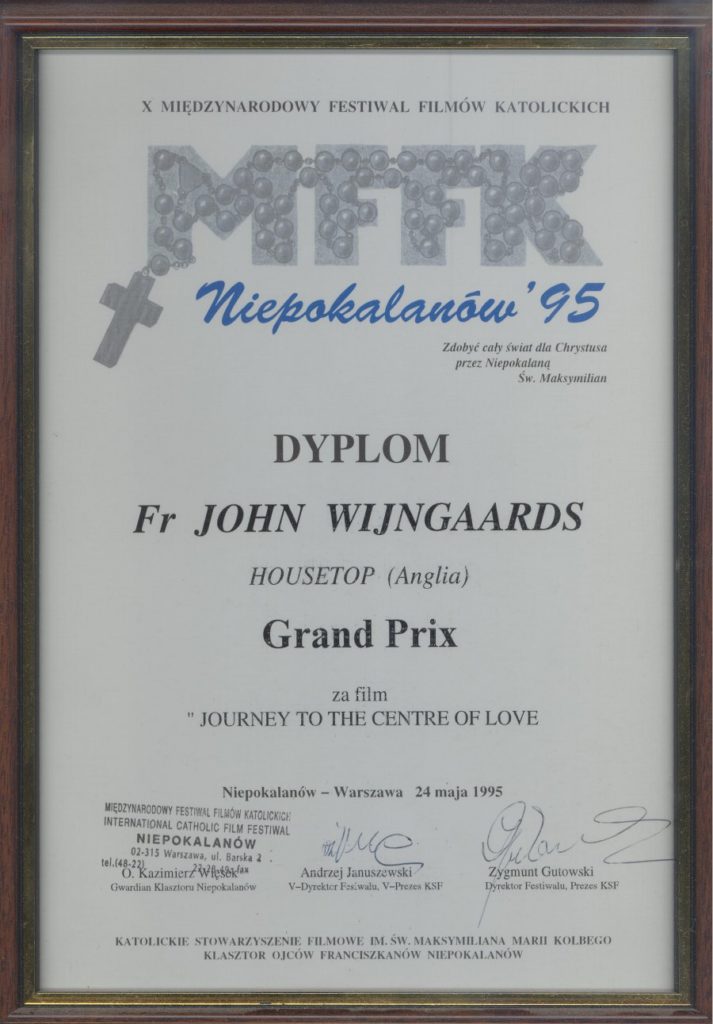 The video won even greater awards. The Tenth International Catholic Film Festival held in Warsaw (18-23 May 1995) has awarded its GRAND PRIX to Housetop’s TV Film Journey to the Centre of Love. The citation read: “The Grand Prix of the Festival is awarded to Journey to the Centre of Love for its profound description of the process by which people of various cultures and nations discover Christian faith, and so come to approach God and his Son Jesus Christ.”
The video won even greater awards. The Tenth International Catholic Film Festival held in Warsaw (18-23 May 1995) has awarded its GRAND PRIX to Housetop’s TV Film Journey to the Centre of Love. The citation read: “The Grand Prix of the Festival is awarded to Journey to the Centre of Love for its profound description of the process by which people of various cultures and nations discover Christian faith, and so come to approach God and his Son Jesus Christ.”
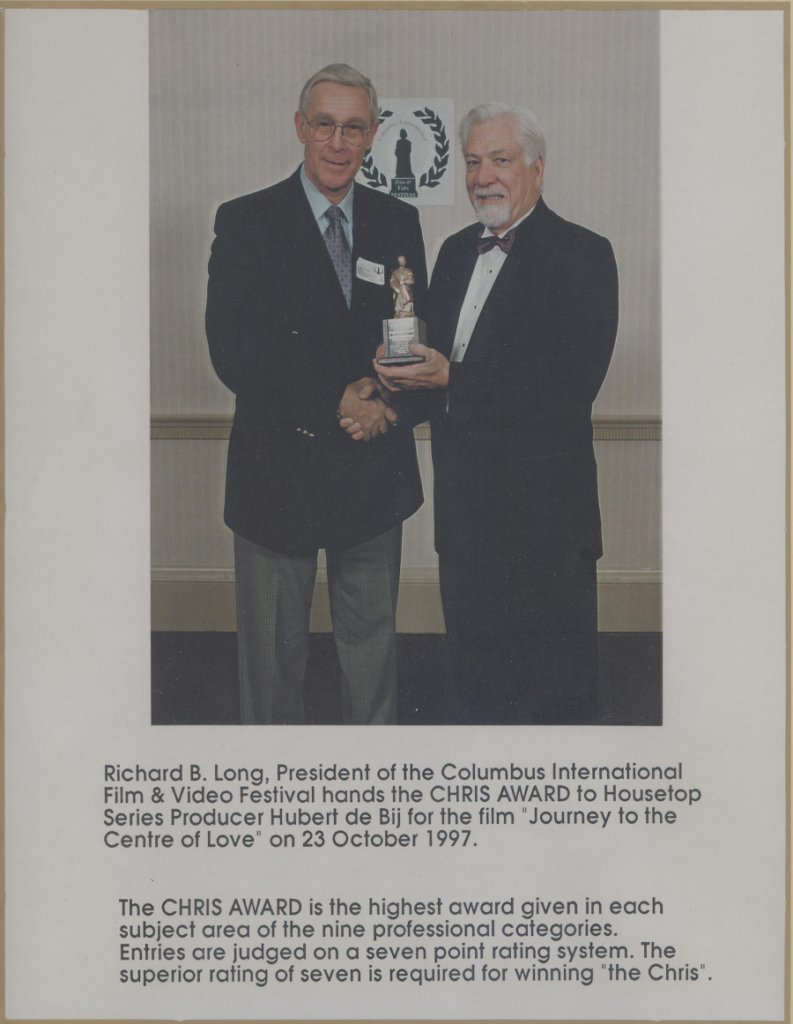 At the 1996 International Film Fest in Columbus, Ohio, USA, Journey to the Centre of Love received the Columbus Award. It is the highest award given to film production in each of nine professional categories. It is internationally recognised as a hallmark of superior quality.
At the 1996 International Film Fest in Columbus, Ohio, USA, Journey to the Centre of Love received the Columbus Award. It is the highest award given to film production in each of nine professional categories. It is internationally recognised as a hallmark of superior quality.
At the 30th Annual Worldfest-Houston International Film Festival of 1997 it won the Bronze Award. The significance of this award – third place – is clear when one knows that it ranked third among 4,150 category entries that were competing from 31 countries.
The course was run in many parishes through the UK. Examples: the parish of St. Mary outside the Walls in Chester ran it in five simultaneous groups for a total of 35 participants for a duration of 15 weeks from October 1996. It was a success. The same was done in St Mary’s Parish, Old Amersham, for six simultaneous groups.
Next to the five-part video course we produced Journey to the Centre of Love as a three-part TV film. It was broadcast in Boston (English), Brussels (Dutch/Flemish) and Taiwan (Chinese).
THE STORY OF MY LIFE
- » FOREWORD
- » Part One. LEARNING TO SURVIVE
- » origins
- » into gaping jaws
- » from the pincers of death
- » my father
- » my mother
- » my rules for survival
- » Part Two. SUBMIT TO CLERICAL DOGMA — OR THINK FOR MYSELF?
- » seeking love
- » learning to think
- » what kind of priest?
- » training for battle
- » clash of minds
- » lessons on the way to India
- » Part Three (1). INDIA - building 'church'
- » St John's Seminary Hyderabad
- » Andhra Pradesh
- » Jyotirmai – spreading light
- » Indian Liturgy
- » Sisters' Formation in Jeevan Jyothi
- » Helping the poor
- » Part Three (2). INDIA – creating media
- » Amruthavani
- » Background to the Gospels
- » Storytelling
- » Bible translation
- » Film on Christ: Karunamayudu
- » The illustrated life of Christ
- » Part Three (3). INDIA - redeeming 'body'
- » spotting the octopus
- » the challenge
- » screwed up sex guru
- » finding God in a partner?
- » my code for sex and love
- » Part Four. MILL HILL SOCIETY
- » My job at Mill Hill
- » The future of missionary societies
- » Recruitment and Formation
- » Returned Missionaries
- » Brothers and Associates
- » Part Five. HOUSETOP LONDON
- » Planning my work
- » Teaching teaching
- » Pakistan
- » Biblical Spirituality
- » Searching God in our modern world
- » ARK2 Christian Television
- » Part Five (2) New Religious Movements
- » Sects & Cults
- » Wisdom from the East?
- » Masters of Deception
- » Part Five (3). VIDEO COURSES
- » Faith formation through video
- » Our Spirituality Courses
- » Walking on Water
- » My Galilee My People
- » Together in My Name
- » I Have No Favourites
- » How to Make Sense of God
- » Part Six (1). RESIGNATION
- » Publicity
- » Preamble
- » Reaction in India
- » Mill Hill responses
- » The Vatican
- » Part 6 (2). JACKIE
- » childhood
- » youth and studies
- » finding God
- » Mission in India
- » Housetop apostolate
- » poetry
- » our marriage
